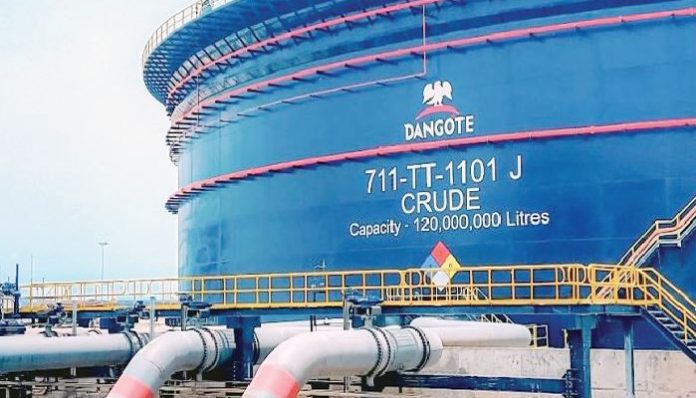The Dangote Refinery in Lagos resumes the importation of crude oil from the United States, following a three-month pause as it ramps up production.
Reports indicate that the refinery secures approximately two million barrels of WTI Midland crude from Chevron Corporation, with the shipment expected to arrive at its 650,000-barrel-per-day facility in Lagos by early December.
Import Trends and Agreements
Earlier this year, the refinery regularly imported one to two shipments of US crude per month while utilizing domestic supplies. However, imports decreased around August due to an agreement with the Nigerian National Petroleum Company Limited (NNPCL). Under this deal, Dangote Refinery receives up to 400,000 barrels of local crude daily, paid for in naira instead of dollars.
Return to US Imports
Chevron is reportedly transporting the crude oil via the supertanker Azure Nova, scheduled to load around December 5. The decision to resume US imports is not fully explained, but industry insights suggest reduced shipping costs may have made US crude more competitive in recent months.
Local Sourcing Challenges
Dangote Refinery continues to face obstacles in sourcing adequate crude oil from Nigerian producers. Vice President Edwin Devakumar has raised concerns about international oil companies inflating crude prices, complicating procurement efforts.
The federal government’s agreement with NNPCL aims to simplify transactions by enabling payments in naira. However, doubts persist about NNPCL’s ability to fully meet the refinery’s crude requirements due to prior sales commitments with international traders.
Expanding Supply Options
In addition to importing crude from the US and Brazil, the refinery is exploring alternative sources, including Libya, to support its operations.
Strategic Role of Dangote Refinery
As Africa’s largest single-train refinery, Dangote Refinery plays a crucial role in reducing Nigeria’s dependence on fuel imports by addressing the nation’s refining limitations.
Beyond meeting local fuel demands, the refinery has started exporting products to Europe and other African countries. Recently, it marked a significant milestone by shipping its first petrol export to Togo, underscoring its growing influence in regional energy markets.













